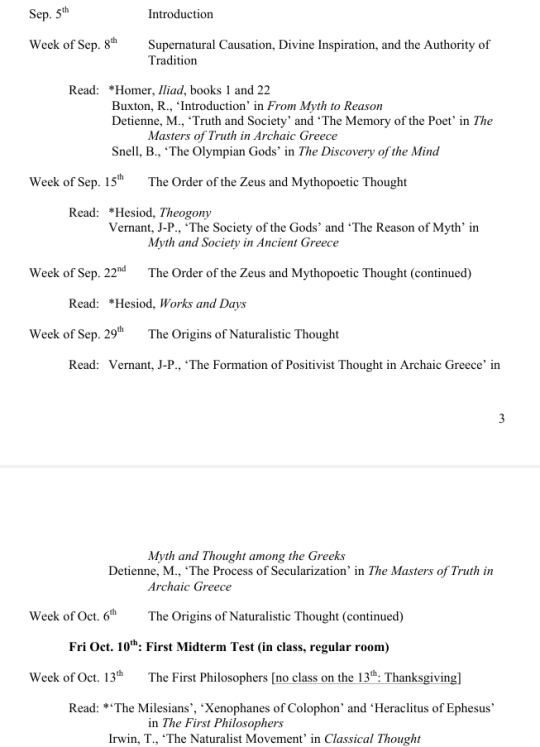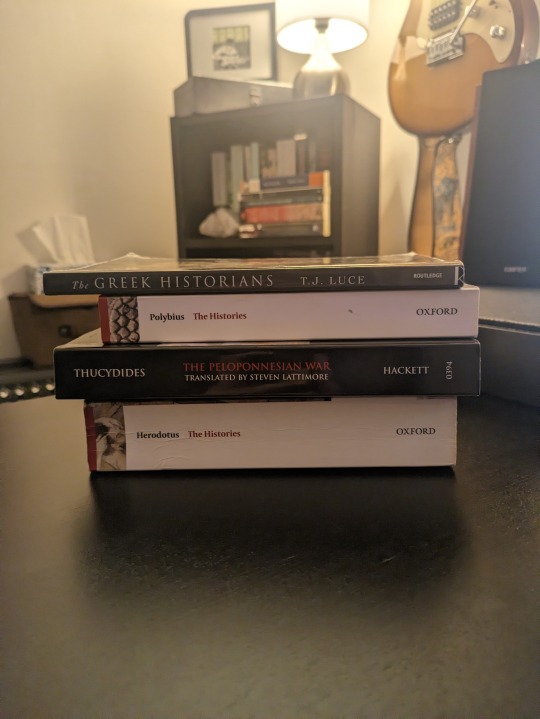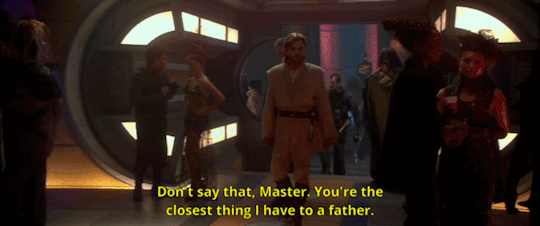#expository teaching
Text
Women Disciples: Jesus's Call to Mary of Magdala
John has put it on record that Jesus called women as his disciples and commissioned them to apostolic ministry just as he did with men, and we can do no less today.
#MaryMagdalene #WomenDisciples #WomenApostles #John20
Though Mary of Magdala is a well-known figure in the gospels, she is not introduced by name until Jesus’s crucifixion in John’s Gospel (John 19:25). John doesn’t explain who she is, or what her relationship is to Jesus or his family, but there she is, with John and Mary, Jesus’s mother. That alone says how important she was to Jesus’s inner circle.
The Morning of the Resurrection 1886 Sir Edward…

View On WordPress
#archaeological#Archaeology#Bible#Bible study#biblical teaching#biblical women#Christ#Egalitarian#equalitarian#exegesis#exegetical teaching#expository teaching#feminism#feminist#Jesus#Jesus Christ#Jesus Messiah#mary magdalene#Mary of Magdala#Messiah#scriptural teaching#scriptural women#Scripture#WOmen#women apostles#women deacons#women disciples#women in Scripture#women in the Scriptures#women of the Bible
0 notes
Text
I love how we got the introduction to TREE LAW a few weeks ago, when that story went viral on Twitter about the person whose neighbor illegally had all of their trees chopped down because they wanted a city view, so that we would understand what was happening when Universal thought it would be funny to deprive strikers of shade by "trimming" city-owned trees to the point of destruction.
This is an excellent example of organically teaching concepts without relying on tedious tutorials or forced, immersion-breaking expository cutscenes.
A++++ game design. 10/10, no notes.
14K notes
·
View notes
Text
5 Reasons to Pray for Your Pastor or Teacher Today
5 Reasons to Pray for Your Pastor or Teacher Today
5 Reasons to Pray for Your Pastor or Teacher Today
All over the world today on this Sunday, pastors and teachers will preach or teach a message. As they do, they fulfill their duty to make full proof of their ministry. Some are paid by the church to serve in a vocational role; others volunteer and teach as a function of their volunteered service. Regardless if you are listening today to one who…

View On WordPress
#Expository Preaching#Pastor Appreciation#Pastor Appreciation Month#Pastoral Ministry#Preaching#Teaching
0 notes
Text
Plans and Projects for Reading Jeremiah
Plans and Projects for Reading Jeremiah
Men who are committed to expositing the word of God have a duty to study the whole of Scripture.
Maybe one of the most relevant books of the Bible for our time and our nation is the book of Jeremiah. He is sometimes called the “weeping prophet” because of the agony he experiences over his nation’s apostasy and the tears he shed on their behalf. Preachers can learn a lot from Jeremiah about living…
View On WordPress
0 notes
Text
Daily Devotional: Romans 3:1-18
Daily Devotional: Romans 3:1-18
Paul makes it clear, the only advantage Jews have over gentiles is that they were entrusted with the oracles of God—the Scriptures—in order for the whole world to be blessed. Their unbelief and belief, though, are equal to that of the gentiles. The unbelief does not nullify the faithfulness, justice, or judgment of God. Paul quotes Psalm 51:4 to show that this is not a new doctrine. In fact, he…

View On WordPress
#all have sinned#andrew paul#bible study#Christian#Christianity#Christoa#church#commentary#daily devo#daily devotional#devotional#expository preaching#free#in the Bible#Romans 3#Sermon#topical teaching#vs
0 notes
Note
So, I don't know if this is within the wheelhouse here but: how do you write a research paper? Do you have any sources or outlines? It's not for a class or anything, I just want to do it because it helps me learn. One big issue I'm running into is a thesis statement- since that is what papers like this are all about. But I'm not trying to make a point or prove anything, just trying to learn about things
Writing a Research Paper for Self-Learning
I'm not clear on whether you want to write a research paper to teach yourself how to write a research paper, or whether you want to write a research paper to teach yourself about a topic you want to research.
If the first--to teach yourself how to write a research paper--thesis statements aren't necessarily there to make a point or prove anything. That's only the case if you're writing an argumentative paper, making a claim about a specific topic and then providing evidence to support that claim. But there are other kinds of research papers, too, such as an expository research paper which simply explains a topic to the reader, or an analytical paper which breaks a topic down to its finer points and evaluates them for the reader. In the case of an expository research paper, the thesis statement will simply distill the topic the paper will explore. For example, "Foxes are members of the dog family known for being clever, solitary, and stealthy. They're among the most iconic wildlife in many countries, and are found throughout the folklore and mythology of many cultures." Then, the paper would go on to explore each of these sub-topics. In the case of an analytical paper, the thesis statement sets out the subject and finer points that will be analyzed. For example, "An analysis of foxes around the world reveals several challenges the small mammal faces with the changing climate, most importantly, loss of habitat, food availability, and territorial shifts due to temperature changes."
If you're writing this paper to help yourself learn about a topic, though, I don't think you need to be so concerned about having a thesis statement or adhering to other academic elements of research papers. Thesis statements are there for the reader, and since there is no reader, I'm not sure what purpose it would serve. At that point, it might benefit you more to simply take notes or tackle it like you're writing an oral report for class.
I hope that helps!
•••••••••••••••••••••••••••••••••
I’ve been writing seriously for over 30 years and love to share what I’ve learned. Have a writing question? My inbox is always open!
LEARN MORE about WQA
SEE MY ask policies
VISIT MY Master List of Top Posts
COFFEE & FEEDBACK COMMISSIONS ko-fi.com/wqa
21 notes
·
View notes
Text

host mother
you seemed to like it when i actually included expository text for once instead of just the title, so context under the cut?
orchidee and tyche, the mother of cybele and the unicorns' host during orchidees... internship? fantasy internship? what else might i call it... work study? lol
tyche and cynric are the parents of seven kobolds, the oldest being the runaway, gwydion, and the youngest being cybele. despite her familys pariah status following gwydions escape, tyche remains the reason why many mouths are still being fed in the settlement. thats one thing orchidee doesnt understand because of her limited worldview - you would feed people who shun you???? but her confusion is outweighed by her fascination. seeing tyche do all the things that servants do in the shadows back in lafossa is an endless source of entertainment for her. yes, she really is THAT interested in watching tyche cook
very quickly, tyche picks up on the idea that orchidee may not have an awesome relationship with her mother. she doesnt write to her, or vice versa, and seems disinterested in talking about her family. orchidee latches onto tyche as a mother figure, and tyche is likewise enamored by her sweet and curious nature. she is also the first to intuit that orchidee has entered some sort of relationship with her youngest child, and actively encourages it in the hopes that cybele will be motivated to leave for a better life in lafossa. her devastation over cybeles death feeds the flame of orchidees desire to reanimate them. but perhaps the most lasting impact she has on orchidee is her passing down of herbal and natural magic. one concoction she teaches orchidee to make is a draught of torpor, which allows the kobolds to sleep through longer periods of hunger and scarcity. orchidee makes this draught to wait out eubora and attempt to reanimate cybele a second time... but she fucks it up and sleeps for several decades instead. she was never good at any kind of magic, i guess! many of tyches recipes serve her well during her life in the deerwood, even if she doesnt remember where the knowledge came from
another one of those "FUCK, just TAKE it" pieces. the problem with tyche is her colors are all very similar, so she threw me for a loop until i was so fed up with correction layers and shading and lighting that i just decided, you know what, im done. im gonna draw her again someday though so im not sweating it tooooo hard... man
#oc bullshit#mad artz#deerwood tag#cybdee tag#orchidee#tyche#kobold#unicorn#anthro#furry art#scalie art
17 notes
·
View notes
Text
I've seen this article posted by others, it's pretty alright and it avoids the trap so many of these sort of essays fall into, a reductive thesis of "smartphone bad" and expands into just how dystopian the perverse incentives of "teaching to the test" have become and the fecklessness of "vibes based literacy". I just wanted to share it because this part was a real "what the fuck" moment for me:
As a college educator, I am confronted daily with the results of that conspiracy-without-conspirators. I have been teaching in small liberal arts colleges for over 15 years now, and in the past five years, it’s as though someone flipped a switch. For most of my career, I assigned around 30 pages of reading per class meeting as a baseline expectation—sometimes scaling up for purely expository readings or pulling back for more difficult texts. (No human being can read 30 pages of Hegel in one sitting, for example.) Now students are intimidated by anything over 10 pages and seem to walk away from readings of as little as 20 pages with no real understanding. Even smart and motivated students struggle to do more with written texts than extract decontextualized take-aways. Considerable class time is taken up simply establishing what happened in a story or the basic steps of an argument—skills I used to be able to take for granted.
This is absolutely wild to me. Completely alien and opposite to what my experience in undergraduate was like. Here are excerpts from a syllabus for a class I took in 2014:


There are between eighty and one hundred fifty pages of reading here each week. I don't have the actual syllabus on hand (it's in a file-box in a closet at my parents) but here's the reading for a class I took the year before:

We read the entirety of these books. Well over 1750 pages of reading in eleven weeks, or roughly 160 pages a week. This was one class, and I had reading in Greek and Latin to do on top of all that. This was undergraduate level.
Now I know that Classics isn't a field you go into unless you're insane, and it's generally more intense than other humanities majors but things can't have gotten so bad that ten pages is considered intimidating, can they? Jesus, maybe it's a good thing I became too disabled to stay in academia.
13 notes
·
View notes
Text
There is alot of really bad theology right now. NAR, Word of Faith and old heresies ( Like reinventing Modalism) are running rampant online that are being perpetuated by so called big-A apostles, prophets and people who claim to perform miracles.
If anyone, and I mean ANYONE, who claims to be an Apostle (specifically of Jesus Christ -- There are only 12.) or a prophet and teaches things that not only are not in the Bible but ask for a 'seed offering' or any kind of monetary gain or deviate from what has been written, they are to be called out as wolves and false teachers. They commit spiritual abuse against people who want to be free from pain and sin by exploiting them, selling them a false bags of goods and keeps telling them to come back again and again to get their 'deliverance from the demon of anxiety.'
These are the 'demon slayer' group, the guys who think that born again Christians can be possessed by demons. Are you flipping kidding me?! Can a demon be in the same vessel of the Holy Spirit who is God? Any well read Christian would know that according to Scripture, its utterly bogus.
Then when they have been taken advantaged of for so long and get out, some remain Christian by the grace of God and fall into the footsteps of true Christianity but most will remain in the hands of wolves. Being fleeced, lulled by what they want to hear, thinking that perhaps being a spiritual person is better then being a biblical person.
The doctrine we have in Scripture rightly tells us about God's Character, Promises, and our salvation outside of our experiences and emotions. Emotions and experiences are different and change, they are secondary to the Scriptures.
But what these NAR--New Apostolic Reformation--folks do is they twist doctrine in that God is now calling new Apostles and prophets to rule the Church. They lull people into their prophetic words and sayings, telling people what they want to hear. Using experience and emotion to get people hooked into their teachings.
I've seen a couple of people on here who post such teachers and this I tell you; run. Run far away from those wolves, they will only bring you to spiritual death and destruction. You posting those teachers can actively stumble others who were brought out of this movements.
Its doctrine like this that strays people away from a full filled Christian life, binding them and presenting a false version of Christianity to the world. Its doctrine like this that will produce rotten fruit.
Now I am not saying that miracles are not for today but it solely depends on God's will, not ourselves. We don't get to decide what gift God gives us and certainly if God has given these gifts, He would give them to whoever He so well pleases.
Find yourself a biblical church, committed to expository preaching. Ask God to get you to a biblical church with a equally biblical pastor. Look at resources like Ligonier Ministry (R.C Sproul) , Crossway, Pirate Christian Radio, The Messed Up Church, White Horse Inn and Founders Ministry.
If you are coming out of the NAR, I highly recommend Pirate Christian Radio (Fighting for the Faith on Youtube) and The Messed Up Church. I would highly recommend Dawn Hill , she came out of the NAR and has since repented of the things she had done in that movement. Lovely lady.
I implore you, and anyone else who is finding themselves falling into these churches. I pray that those wolves repent and turn.
#christianity#new apostolic reformation#nar#christian life#christian#christian living#christian doctrine#biblical scripture#absolute buffoonery in some of these NAR churches#Im dead serious#look at Church by the Glades or Chuck Pierce's church#madhouses
13 notes
·
View notes
Text
A good father and a bad father.
Oh hey, so. I finished reading the Revenge of the Sith screenplay, Fourth Draft, from June 2003.
One quick thing:

He calls Obi-Wan his "father". Not "brother".
I'll go into why I think this was cut in another post (short version: lot of scenes in this draft are very expository and go on for waaay too long) but combined with these two moments in Episode II...


... that's three times Anakin refers to Obi-Wan as "father".
Obviously, it's not just a father/son sort of bond. When Anakin becomes a Knight, their bond becomes more brotherly. They're equals, they bicker like siblings, they're in sync, the ultimate team.
But early on, when Obi-Wan is given the task to be Anakin's master, he is indeed a paternal figure to Anakin, not "just a brother". And, sometimes, a father needs to be firm.
Which is why, Palpatine also fulfills a fatherly role, but intentionally does it in a way that he knows will make Obi-Wan and the Jedi look bad by contrast. He's the fun uncle/grandpa who always says "yes", he's Anakin's friend, a guy who'll never judge him, no siree.

Similar to Luke, later on, we have a situation where Anakin's actually got two fathers.
A good one and a bad one.

Obi-Wan is the good father, he's coming from a place where he genuinely cares and wants Anakin to thrive. He's usually the one who tells Anakin what he needs to hear.
Sidious is the bad father, he's literally just sharpening his next weapon at a gradual pace, only telling him what he wants to hear.
Only in this case, it's a situation more akin to what you'll find in some households, where one parent gets to be the "friendly/cool" one and the other, by contrast, is the "mean/nagging" one.
Obi-Wan's the Dad who's with Anakin most of his day and will tell Anakin to finish his veggies and clean up his room. It's not all he does, mind you, but if the room's a mess...
Palpatine's the Dad who only occasionally interacts with Anakin, but he will secretly give Anakin tons of lollipops and always cracks jokes and let him do stuff he normally shouldn't be doing.
Every time Obi-Wan teaches Anakin something, Anakin learns the theory, and before he can put it to practice you got Papatine swooping in and saying "you don't really need to do that, kid, forget that noise, you're great the way you are" and Anakin never puts it into practice. He learns the lesson but never incorporates it.
This eventually builds up to Anakin's downfall.
So Anakin did have a father. He did have the family he needed, he did have the support, it was right there if he but asked for it.
It's just that Palpatine manipulated Anakin for 13 years straight, enabling his worst traits and making him think that they weren't there for him, that he couldn't ask.
ADDENDUM:
353 notes
·
View notes
Text
The Loss of Things I Took for Granted
Ten years into my college teaching career, students stopped being able to read effectively.
by Adam Kotsko

Recent years have seen successive waves of book bans in Republican-controlled states, aimed at pulling any text with “woke” themes from classrooms and library shelves. Though the results sometimes seem farcical, as with the banning of Art Spiegelman’s Maus due to its inclusion of “cuss words” and explicit rodent nudity, the book-banning agenda is no laughing matter. Motivated by bigotry, it has already done demonstrable harm and promises to do more. But at the same time, the appropriate response is, in principle, simple. Named individuals have advanced explicit policies with clear goals and outcomes, and we can replace those individuals with people who want to reverse those policies. That is already beginning to happen in many places, and I hope those successes will continue until every banned book is restored.
If and when that happens, however, we will not be able to declare victory quite yet. Defeating the open conspiracy to deprive students of physical access to books will do little to counteract the more diffuse confluence of forces that are depriving students of the skills needed to meaningfully engage with those books in the first place. As a college educator, I am confronted daily with the results of that conspiracy-without-conspirators. I have been teaching in small liberal arts colleges for over 15 years now, and in the past five years, it’s as though someone flipped a switch. For most of my career, I assigned around 30 pages of reading per class meeting as a baseline expectation—sometimes scaling up for purely expository readings or pulling back for more difficult texts. (No human being can read 30 pages of Hegel in one sitting, for example.) Now students are intimidated by anything over 10 pages and seem to walk away from readings of as little as 20 pages with no real understanding. Even smart and motivated students struggle to do more with written texts than extract decontextualized take-aways. Considerable class time is taken up simply establishing what happened in a story or the basic steps of an argument—skills I used to be able to take for granted
READ MORE
8 notes
·
View notes
Text
HER STORY: Christ's Ministry, Woman Caught in Adultery
Most Bibles point out the earliest manuscripts do not include this story, and sometimes it appears in Luke However, Jerome, in 383 AD, included it in his translation of the Gospel of John, right after chapter 7, where it is usually found today.
#John7
Most Bibles point out that the earliest manuscripts do not include this story, and sometimes it appears in Luke However, Jerome, in 383 AD, included it in his translation of the Gospel of John, right after chapter 7, where it is usually found today. Jerome noted that many ancient Greek and Latin manuscripts at his disposal had this story, in its usual position. Ambrose of Milan, and Augustine…

View On WordPress
#Bible#Bible study#biblical teaching#biblical woman#biblical women#egal#Egalitarian#expository teaching#John 7#scriptural teaching#Woman caught in adultery#Women in the Bible
1 note
·
View note
Text
chit-chattin about voiced protagonist and pre-war stuff
i'm not big on the whole voiced fallout protagonist thing, don't get me wrong, it was an attempt to ape mass effect and that format had its problems anyway, but i think the actors are charismatic enough that i don't hate it on principle. the biggest problem arises in the 'four buttons for all options' speech system. to account for your psuedo-shep, npc and companion dialogue has to be scaled way, way back and be more expository and functional. there are a reason companions are far and away the most popular aspect of the game, and i'm saying that as somebody big in on a particular one because they conjured an interesting guy by what may be total accident. they get to be characters and have a distinct voice. everybody else either has to tell you, upfront, what their deal is or hide it behind a speech check so obvious that you can infer it yourself. the game isn't devoid of them, cricket for example, but there aren't too many
but i think the biggest missed opportunity, more than the valentine kellogg brain thing, is that the game picks up a person mired in a regressive, stagnant system, somebody who would know it intimately (lawyer) or enforce it through violence (soldier), dumps them in a future where these fixed points of their reality no longer exist, everybody dead, and forgets that this may in fact be an interesting vein to dig out. you're a soldier and the war you fought in killed BILLIONS of people and warped the face of the earth forever and, unlike the ghouls, it's totally fresh for you! and it sort of doesn't come up? you get a couple of offhand reactions but that's about it. your character isn't a fish out of water, they're somebody who got off at the wrong bus stop and has to stop a passing stranger for directions. oh wow, only center for learning left in the city is a ten foot cube in the baseball stadium teaching basic literacy, huh? I saw MIT at its peak two days ago! bye! you could blindfold anybody, tape them to a chair, spin them at centrifuge speed and make them throw darts with their mouth and i bet you nine out of ten times they'd hit something fascinating with that basic premise. let's try it with this guy. let's see here. 'find missing baby'. oh god oh shit it's john bethesda oh f
#fallout#fallout 4#fo4#i think part of why i'm so compelled by fo4 specifically over a game that's better in its execution#is that some of the things it presents are really interesting#but then you open the box and go oh... i wish somebody else wrapped this#fascinating to me. you know when you salt a fish and its nerves fire and you see what does what and moves whatever#that's what poking at that game does for me. endlessly fun. affectionate as well if you can believe it#far harbor fixed almost all of this. yet again i must go to bat for far harbor#she truly has it all#bethesda if you hire me for fallout 5 the protagonist will be pre-war but one dialogue option will always be 'screaming and puking'#sometimes 'puking and screaming'. i have the range. it will be a hard 3/10 and everyone else will hate it
40 notes
·
View notes
Text
R.J. Coates and J.I Packer once wrote, “A well-worn Bible is an impressive if not a beautiful sight.”1 Faithful Christian living is largely a matter of looking to God’s Word and humbly submitting to what we hear and see there. This is the reason the mission of Truth For Life is “to teach the Bible with clarity and relevance.” We believe that God has ordained that by means of biblical teaching and preaching, “unbelievers will be converted, believers will be established, and local churches will be…
4 notes
·
View notes
Text
From now on every time I see a boring post obsessed with analyzing Leon and insisting that what they’re analyzing is a deep insight to the character and not just like, expository dialogue or awkward rigging, I’m going to make a post praising the female characters in the series
Anyway this post is about Rebecca in Stage
I’m gonna make it a bullet point list so i don’t get too rambly okay here we go
She has genuine connections with the people at Philosophy University even though it’s technically just a cover mission. She’s friends with her fellow staff (Bethany, Dr. Howard, Director Sennet, she’s even the first one to be kind to Posh when they meet him) she cares deeply about her students, unable to kill them when they’ve become zombies, intensely emotional when trying to save Lucas and Mary, and unable to shoot Mary even when Mary is threatening to kill them all
Her relationship with Chris is highlighted which is nice. They meet in the mansion, which it’s nice to see that flashback, he constantly shows how much he cares about her by checking on her throughout, protecting her, trying to rescue her, trusting her when it comes to Tyler, etc.
She connected with Tyler too, as she seemed genuinely upset hearing about Tyler’s death and genuinely shocked to see him alive at the university
She quickly forms a friendship with Piers, not to be redundant but she’s such a nice and friendly person
She’s also quick to hate Barrington and call out his shit
When she gets kidnapped she first gets as much info as she can out of Dr. Howard before freeing herself and escaping, not even needing to be rescued
The lesson she gives at the beginning of the play is out of earnest and a genuine attempt to teach her class something, meaning she’s a good professor too
And when Mary tries to challenge her, she’s put off by it, but she still hears Mary out
Despite her reluctance to shoot her former students, she’s shown via the flashbacks to be adept with a gun and knowledgeable about the zombies and a true badass
Her character is so fucking good in this guys seriously Rin Asuka fucking nailed it
8 notes
·
View notes
Text
Alignment by Amber DiPietra
From My Notebook has a Rigid Spine or How to Operate the Body in Writing
Note: This excerpt is the beginning of a talk I wrote for the Poetics of Healing, a series of lectures and panels curated by Eleni Stecopoulos with the support of the Poetry Center at San Francisco State University and The Creative Work Fun. The series included poets in the medical field as well as poets who were survivors of war or trauma. I was the only visibly disabled person in the series that year. While very grateful for the invitation to present at one of the events, I felt that the content of my talk had to focus on my ambivalence toward the idea of healing. My talk was complicated by certain facts: I was speaking alongside doctors from the teaching hospital that I was struggling to gain admittance to as a patient; the venue where the Poetics of Healing was being held was up a steep flight of stairs; and the approaching date of the talk coincided with the realization that I needed to find ways to spend less time at the computer doing my “writing” because this work exacerbates my chronic pain and physical limitations—a somatic need which, I feared, contradicted my pride at being a writer of disability poetics. At the time I wrote this talk, I was also trying too hard to figure out what kind of poet I was and what form and style I was working in.
ALIGNMENT
It has been difficult to prepare something for this series. I had intended to an essay on the word “healing,” and specifically, the way it does not quite translate to terms such a “rehabilitation,” “accommodation” and “advocacy” in the lives of person with disabilities. I had wanted to make an investigation into why “healing” sounds so much more poetic or impactful than these terms and what can be done to infuse the language of medicine with the moving efficacy of a term like “healing.” To make a new poetic pact, I had also thought to write only airy poems that contained no trace of expository physiology, but just the gestures of a kinesthetic phantom self. None of this worked out, at least not now.
A split in my process has arisen, one that is forcing my writing into a kind of fugue state. I have aligned myself with an avant-garde poetics—a realm of writing in which identity disappears, or is ejected, or is seen as aesthetically inferior or passe—at the same time, in my life, I have come to identify most strongly as a disabled person who has a set of political, professional, social, and personal concerns relevant to that disability. Writing, then, becomes a pre-emptive attempt to determine my angle of incidence. I do not act, but measure the contours of a form I might take. This measurement stems from a desire to veer as far as possible from the stock characters of triumphalist media—that form which minimizes content by capsular and spectacular headlines (“Everest Climber Has No Legs!”) or the sickly sweet odor (flowering trees glimpsed through hospital room window, the sugars in urine) of the old-fashioned “illness memoir.”
The disabled self is always a reader of his or her own body. The disabled body is a trifold pamphlet composed of medical terms, insurance jargon, social service lingo, self-help verbage, advocacy mottos, and more currently, ontological and epistemological rhetoric on the disabled everyman who will save us from post-modern burnout. By that last part, I mean the theory that since disability pervades all identity categories, it also dismantles them—that disability is socially constructed and, thus, everyone, in a sense, is disabled because we are all disabled by something. Certain disability theories formulated along these lines almost make the term “disabled” vanish and yet seem totally disconnected from the somatics of “being disabled,” from what the body feels.
Being, already, a reader of my own trifold pamphlet, I do not want to author poems or essays in which I further evanesce away with my self in favor of a poetics of abstraction that de-emphasizes agency and makes thick, if not slippery, material of language. I need, instead, to write a poetics that is porous, a membrane. A text that sucks the reader through it's many holes and vaporous areas while offering also a sampling of real tissues, body-systems, that another body can assimilate. To bring my body in—and yours. In my writing, I am in search of a transparent, mobile language that moves, even when it occludes. This speaks directly to the processes of the body. An elbow either unhinges or it doesn't, and yet there are all the increments between. Skin, the ulna and the humerus, the annular ligament, cartilage, cells, carbon. The more present the body, the more mutable the self. Though, also, the self is always becoming rarefied in this particulate instant of lengthening or contracting. How or how not. Anyone's arm, your arm, my arm. Here and there, where you read or hear this.
Excerpt taken from Beauty is a Verb: The New Poetry of Disability
#I couldn't find the full speech when I looked online but it's so fucking good I had to transcribe it (point out any typos to me)#disability#poetry#disability poetics#Amber DiPietra#medicine#ableism
2 notes
·
View notes